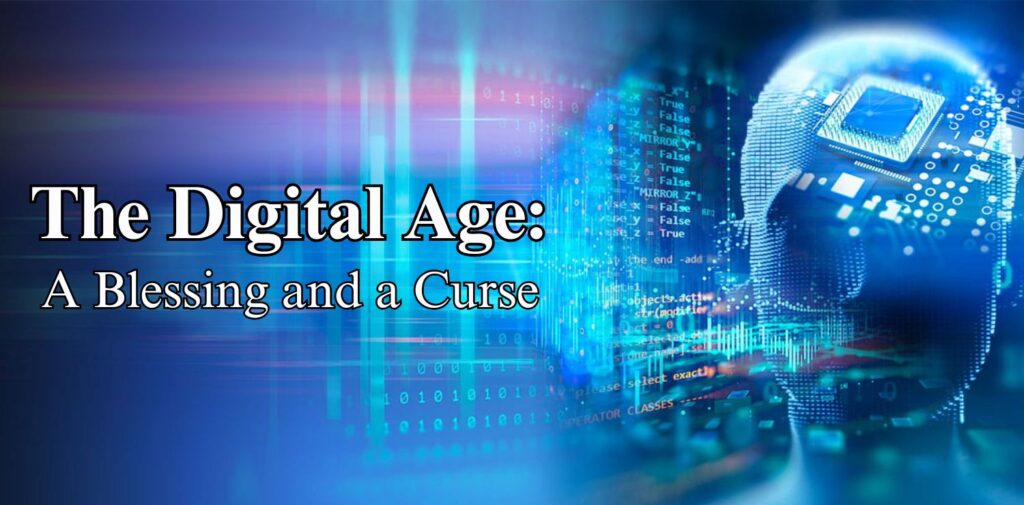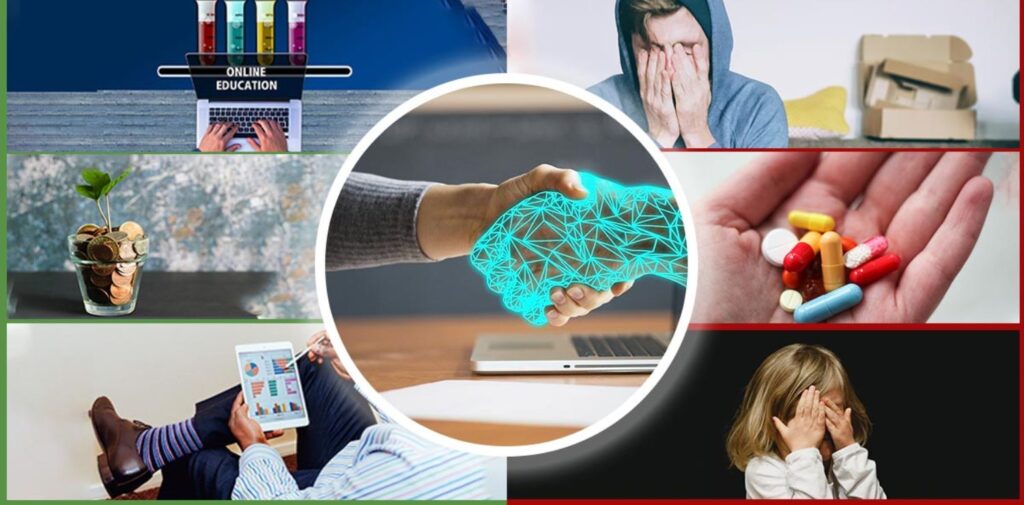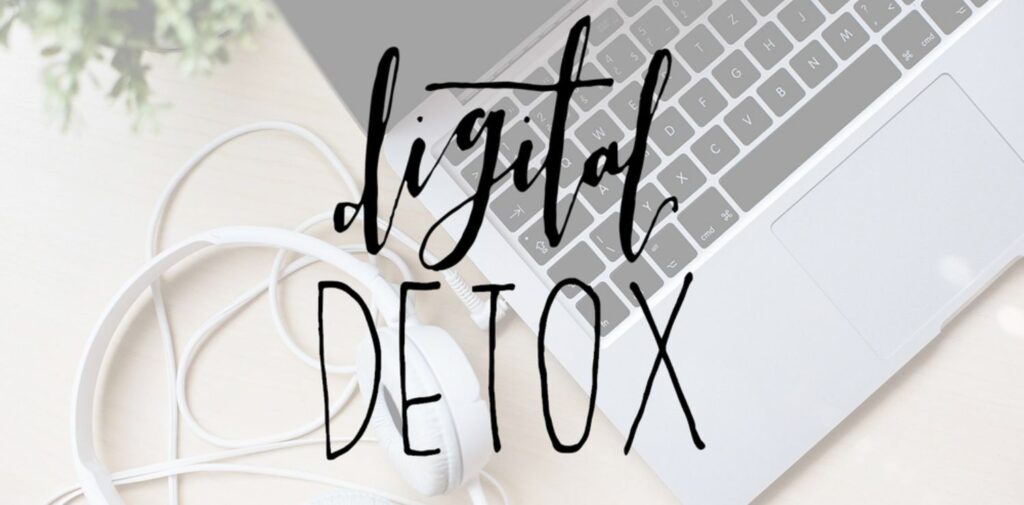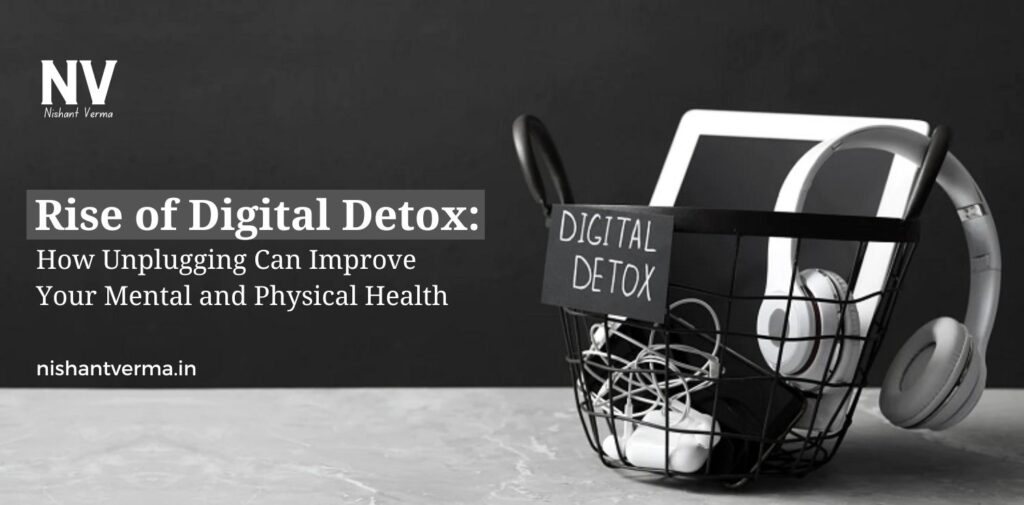In today’s world, technology is everywhere. It’s in our pockets, on our desks, in our homes, and even in our pockets at all times. While technology has made our lives easier in many ways—connecting us to friends, offering endless information, and providing entertainment—there’s a growing concern about the impact of constant digital exposure on our mental and physical health. Many people are beginning to embrace the idea of a “digital detox” as a way to disconnect from screens and recharge their minds and bodies. But why has this trend gained so much attention, and how does it really affect us? Let’s take a closer look.
The Digital Age: A Blessing and a Curse
It’s hard to imagine life without smartphones, computers, and the internet. With just a few taps or clicks, we can shop, communicate, work, and learn from anywhere at any time. Social media, in particular, has become a significant part of our daily routine. The constant stream of notifications, updates, and messages can make us feel constantly “on,” even when we’re supposed to be relaxing.
However, this constant connectivity comes with a downside. Research shows that spending too much time on screens, especially social media, can lead to a range of psychological and physical problems. These issues can include anxiety, depression, sleep disturbances, and physical ailments like eye strain and poor posture.

The Psychological Effects of Constant Technology Use
1. Anxiety and Stress
The more time we spend on our devices, the more we are exposed to information, opinions, and updates from all over the world. While it’s great to stay informed, it can also become overwhelming. Constantly checking emails, social media, and news outlets can create a sense of urgency, leading to stress and anxiety. People may feel pressured to respond quickly to messages or to always be “available,” which can lead to mental exhaustion.
Moreover, social media can contribute to feelings of inadequacy and self-doubt. Seeing the highlight reels of other people’s lives often makes us compare ourselves, causing negative emotions like jealousy or low self-esteem. This cycle can fuel anxiety and contribute to a sense of never being good enough.
2. Decreased Focus and Attention
Technology also has an impact on our ability to focus. When we’re constantly jumping from one app or notification to another, our attention span becomes shorter. Studies have shown that our brains can’t effectively multitask, so when we’re flicking between different screens and tasks, we’re not actually being productive. Instead, we’re training ourselves to become distracted more easily. This lack of focus can affect work performance, academic success, and even our ability to engage in deep, meaningful conversations with others.
3. Social Isolation and Loneliness
Although technology connects us to others, it can also create a sense of isolation. Many people spend more time interacting with their devices than with real people, leading to shallow online connections rather than deep, face-to-face relationships. Studies have shown that excessive screen time can make us feel more lonely, despite being “connected.” Without real human interaction, it’s easy to feel disconnected from the world around us.

The Physiological Effects of Technology Use
1. Eye Strain and Digital Eye Fatigue
One of the most common physical complaints associated with technology use is digital eye strain. When we spend long hours staring at screens, our eyes are forced to focus on small text and images, which can lead to discomfort. Symptoms of digital eye fatigue include dryness, blurred vision, headaches, and neck or back pain. This is often referred to as “computer vision syndrome,” and it’s something many of us experience without realizing it.
2. Poor Posture and Back Pain
Another health issue linked to prolonged screen time is poor posture. Many people slouch or hunch over their devices, whether they’re working at a computer or scrolling on a phone. Over time, this can lead to chronic back, neck, and shoulder pain. Poor posture can also contribute to other issues, such as headaches and tension in the body.
3. Sleep Disruption
A less obvious but equally serious effect of constant technology use is its impact on sleep. The blue light emitted by screens can interfere with the production of melatonin, the hormone that helps regulate sleep. When we use our devices late at night, it can trick our brains into thinking it’s still daytime, making it harder to fall asleep. As a result, many people struggle with insomnia or poor-quality sleep, which can leave them feeling fatigued and mentally foggy the next day.
The Digital Detox Movement: Taking a Break from Technology
Given the growing concerns about the impact of constant screen time on our health, the concept of a “digital detox” has gained popularity. A digital detox is a conscious effort to reduce or eliminate technology use for a certain period of time in order to give the mind and body a break.
A digital detox doesn’t mean cutting out technology entirely. Instead, it involves taking intentional breaks from screens and reconnecting with real life. Some people choose to take one day a week to go without their phones, while others might opt for a weekend or even a full vacation away from digital devices.
Benefits of a Digital Detox
1. Reduced Stress and Anxiety
One of the main benefits of taking a break from technology is reduced stress. By stepping away from the constant flow of information and notifications, you can allow your mind to rest and recharge. Without the pressure of always being “on,” you may find that your anxiety levels decrease and you feel more at ease.
2. Improved Focus and Productivity
Taking time away from your devices can help restore your ability to focus. Without the constant interruptions of notifications or the temptation to check social media, you may find that you can concentrate better on the tasks at hand. This can lead to increased productivity and a greater sense of accomplishment in both your personal and professional life.
3. Better Sleep
By turning off screens at least an hour before bed, you can improve your sleep quality. Without the blue light from phones or computers, your body will be able to produce more melatonin, helping you to fall asleep faster and enjoy a deeper rest. A good night’s sleep is crucial for mental clarity, emotional balance, and overall well-being.
4. Enhanced Relationships
A digital detox can also improve your relationships. When you’re not distracted by your phone or computer, you can be more present with the people around you. Whether it’s having a meaningful conversation with a friend or enjoying quality time with family, unplugging can help you create deeper connections with others.
5. Improved Physical Health
Taking a break from technology can also have positive effects on your physical health. Without the strain of staring at screens for hours, you may notice a reduction in eye fatigue, headaches, and neck pain. Additionally, spending more time outdoors and engaging in physical activities can help you stay active and improve your overall fitness.

How to Unplug: Simple Tips for a Digital Detox
If you’re ready to try a digital detox, here are some simple tips to help you get started:
- Set Boundaries: Decide on specific times during the day when you’ll completely disconnect from technology, such as during meals or before bedtime.
- Turn Off Notifications: Disable non-essential notifications on your phone so you’re not constantly interrupted by alerts.
- Designate Screen-Free Zones: Create areas in your home, like the bedroom or dining room, where screens are not allowed.
- Practice Mindfulness: Use your detox time to engage in activities that promote mindfulness, such as reading, meditating, or going for a walk.
- Start Small: If the idea of going tech-free for an entire day feels overwhelming, start with just an hour or two, and gradually increase the time.
Conclusion: The Importance of Balance
Technology is a powerful tool, but like anything, it’s important to use it in moderation. While the digital world offers endless opportunities for connection and convenience, it’s crucial to remember that your mental and physical health should always come first. A digital detox can be a helpful way to regain balance, reduce stress, and reconnect with the present moment. So, the next time you feel overwhelmed by technology, take a step back, unplug, and give yourself the gift of time away from the screen. Your mind and body will thank you for it!




